May 4, 2024 | 10:46 GMT +7
May 4, 2024 | 10:46 GMT +7
Hotline: 0913.378.918
May 4, 2024 | 10:46 GMT +7
Hotline: 0913.378.918
Applying high technology to agricultural production is a necessary activity to help farmers increase labour productivity. In recent years, many high-tech agricultural zones have been established across the country with investment in systematic infrastructure. However, implemented activities have not brought adequate efficiency and the ability to attract investment capital is still low.
Currently, the Prime Minister has approved the establishment of 6 high-tech agricultural zones. Among them, Hau Giang province's High-tech Agricultural Application Park was first approved in 2012 with an area of 5,170 ha. However, the implementation progress is still slow, currently, it is still in the stage of completing the construction of the headquarters and calling for initial investment from businesses.
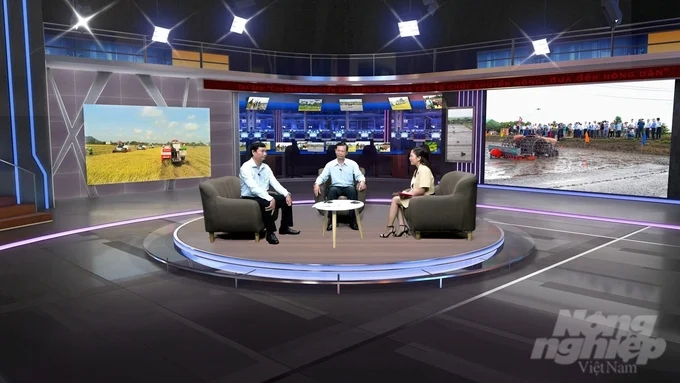
Seminar "The way to transfer technology to agricultural extension organizations and bring it to farmers" organized by Vietnam Agriculture News. Photo: Kieu Trang.
At the seminar "Agricultural Extension Organizations - Direct transfer of scientific research results" recently organized by Vietnam Agriculture News, Mr Vo Xuan Tan, Director of the Center for Agricultural Extension and Services of Hau Giang province acknowledged that the cause of this delay stems from unfavourable geographical location.
Hau Giang province's high-tech agricultural application zone is planned in remote areas with undeveloped infrastructure, especially road traffic. In addition, this location is adjacent to 4 communes of Long My district: Vinh Vien, Vinh Vien A, Luong Tam and Luong Nghia. These are low-lying areas of Hau Giang province, with low soil, alum contamination, salinity, and difficulty in agricultural cultivation. Unfavourable soil conditions lead to inappropriate transfer and application of high technology in the field of plant and animal breeding.
In order for the High-tech Agricultural Application Zone of Hau Giang province to promote its role, the Hau Giang Provincial People's Committee is implementing a human resource training policy for technology transfer in the coming years. At the same time, strengthen coordination with high-tech agricultural zones in other provinces, especially Ho Chi Minh City - where they operate very effectively.
In addition, the province also cooperates with institutes and schools to carry out scientific research topics and projects and develop processes for selecting suitable plant and animal breeds...
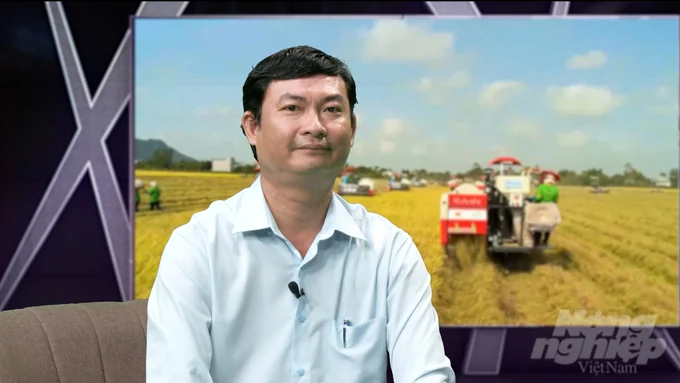
Mr. Vo Xuan Tan, Director of Hau Giang Province Agricultural Extension and Services Center assessed the progress of implementing the High-tech Agricultural Application Park in Hau Giang province is still slow. Photo: Kieu Trang.
In addition to Hau Giang province, Dr. Dang Kieu Nhan, Director of the Mekong Delta Development Research Institute (Can Tho University) said that the Mekong Delta region has 4-5 provinces/cities with high-tech agricultural zones. However, most of them cannot fulfil the functions and tasks of researching and applying high technology in agricultural production.
In Dr. Nhan's opinion, recently there has been confusion between the concepts of high-tech agricultural zones and high-tech agricultural zones. High-tech agricultural zones have the function of leading and supporting high-tech applications in agriculture. Spreading high technology abroad is the role of agricultural areas. This includes areas for applying high technology, concentrated raw material areas and processing factories.
With the above analysis, Dr Nhan said that High-tech agricultural zones do not require a large area, but they must ensure the conditions and subjects to focus on applied research, technology incubation, demonstration as well as implementation of appropriate support services.
The construction of high-tech agricultural zones in each province will have its own characteristics depending on the characteristics of the industry and research subjects.
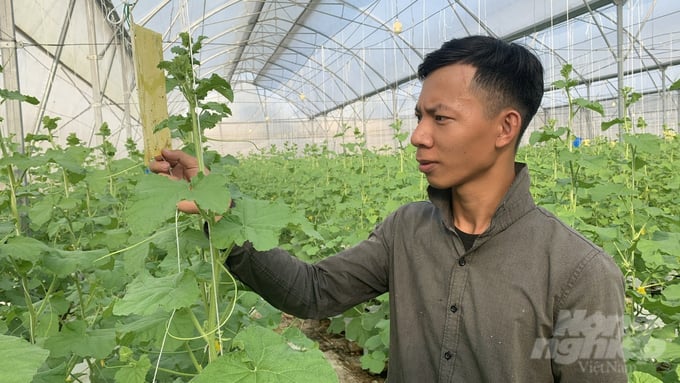
High-tech agricultural zones do not require a large area, but they must ensure the conditions and subjects to focus on applied research, technology incubation, demonstration as well as implementation of support services. Photo: Ho Thao.
According to the direction of integrated planning for the Mekong Delta, in the future, the Mekong Delta will have a Center for Linking Production - Processing and Consumption of Agricultural Products in the Mekong Delta. The Center will be located in Can Tho City.
In addition, 7 sub-regional focal centres will also be established in localities in the region. Each centre will have different business objects. For example, Hau Giang province will develop agricultural service logistics to support other focal centres. An Giang province will develop rice and freshwater fisheries; Ben Tre and Tien Giang provinces develop fruit trees and vegetables; coastal localities of Soc Trang and Ca Mau will focus on developing aquaculture and fishing...
Dr Dang Kieu Nhan affirmed that when this network of focal centres is formed, it will support and connect agricultural zones by applying high technology, promoting the development of the region's agricultural industry.
In addition, in order for high-tech agricultural zones to operate effectively, localities need to consider planning the vicinity near institutes and schools to support businesses in promoting research, application, technology incubation, technology development and transfer.
Translated by Hoang Duy
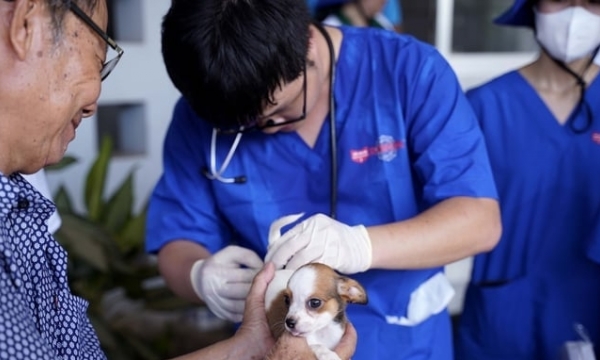
(VAN) Pet owners in Long An province exhibit indifference and a lack of understanding regarding rabies. They maintain the misconception that pet dogs and cats are immune to the disease.
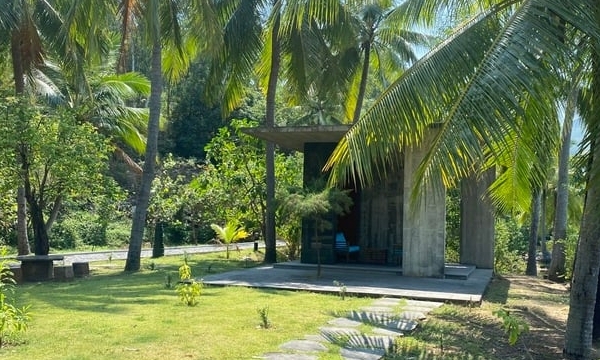
(VAN) The STAR-FARM project is funded by the European Union and implemented in the provinces of Dong Thap, Kien Giang and Tra Vinh, with a total investment of 4.2 million Euro.

(VAN) The ecosystem and social impact business organizations (SIBs), although still modest in number, is very diverse and dynamic, they have been creating positive changes in many aspects, contributing to building a sustainable future
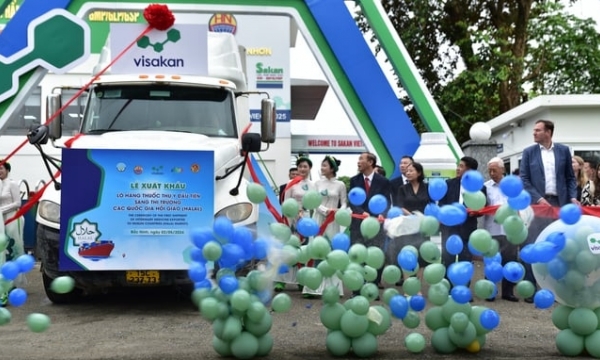
(VAN) Visakan Biotechnology Development Investment Company, a subsidiary of Hung Nhon Group, recently held a ceremony to commemorate its first export shipment of veterinary medicine to the Halal market.
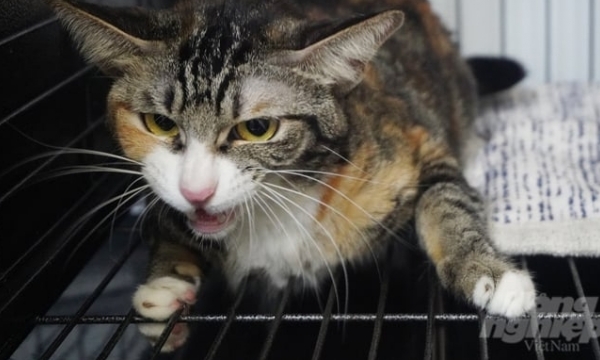
(VAN) If temporary regulations on dog and cat ownership are approved, Ho Chi Minh city will pilot the implementation of microchipping for dogs and cats in several designated areas within the inner city.
/2024/05/02/5303-5730-6-185654_281.jpg)
(VAN) Dr. Pham S, Vice Chairman of Lam Dong Provincial People's Committee: 'Lam Dong has attracted 80 FDI enterprises and 1,550 domestic enterprises to invest in agricultural development, with 150 agricultural cooperatives applying high technology'.
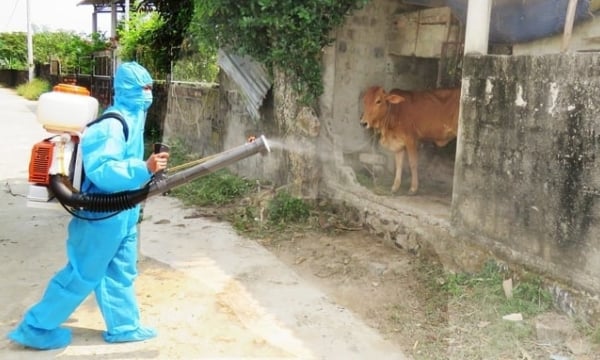
(VAN) An outbreak of Lumpy Skin Disease has occured across four districts in Quang Binh province, prompting local veterinary forces to strengthen prevention efforts.